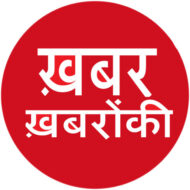
Ira Singh
Khabar Khabaron Ki,22 March’25
The Modi government has decided not to extend its ambitious Rs 1.9 lakh crore Production-Linked Incentive (PLI) scheme aimed at bolstering domestic manufacturing, as the program has failed to meet its intended goals. Introduced four years ago with the objective of reducing dependence on China and making India a global manufacturing hub, the scheme will now lapse without expansion beyond the 14 pilot sectors, according to information.
Manufacturing Sector Performance Falls Short
The PLI initiative was envisioned to increase the share of manufacturing in India’s GDP to 25% by 2025. However, contrary to expectations, the manufacturing sector’s contribution has declined from 15.4% to 14.3% since the program’s inception,according to official data. Despite participation from over 750 companies—including major players like Apple supplier Foxconn and Reliance Industries—several firms struggled to initiate production, while others that met manufacturing goals faced delays in receiving incentives.
Limited Incentive Disbursement
As of October 2024, the companies under the PLI scheme had produced goods worth Rs 13.13 lakh crore—only 37% of the target set by the government. Furthermore, only Rs 14,900 crore (less than 8% of the allocated funds) had been disbursed in incentives. The delay in subsidy payouts and bureaucratic hurdles have been cited as key reasons for the scheme’s underwhelming impact, as per official release.
Government Stance and Future Plans
While the government is letting the PLI scheme lapse, officials reportedly clarified that this does not signal an end to India’s manufacturing ambitions. Alternative strategies are being explored, including a shift towards direct investment reimbursements to accelerate industrial growth. In sectors like pharmaceuticals and mobile manufacturing, the scheme has yielded significant progress—94% of the Rs 5,359 crore disbursed between April and October 2024 went to these industries. However, sectors like steel, textiles, and solar panel manufacturing have struggled, facing intense competition from cheaper imports, particularly from China.
Challenges in Key Sectors
The solar industry, for instance, has seen major setbacks, with eight out of twelve firms failing to meet production targets. According to recent analysis report leading companies like Reliance, Adani, and JSW were lagging in meeting their commitments. Similarly, in the steel sector, 14 of the 58 approved projects under the PLI scheme were withdrawn due to a lack of progress,stated official data.
Missed Opportunity for Manufacturing Growth?
Trade experts believe that India may have lost a crucial opportunity to revamp its manufacturing sector. With global companies seeking alternatives to China amid geopolitical tensions and supply chain disruptions, India was well-positioned to attract investments. However, bureaucratic inefficiencies, delays in incentive distribution, and stiff global competition have hindered the country’s ability to fully capitalize on this shift.
